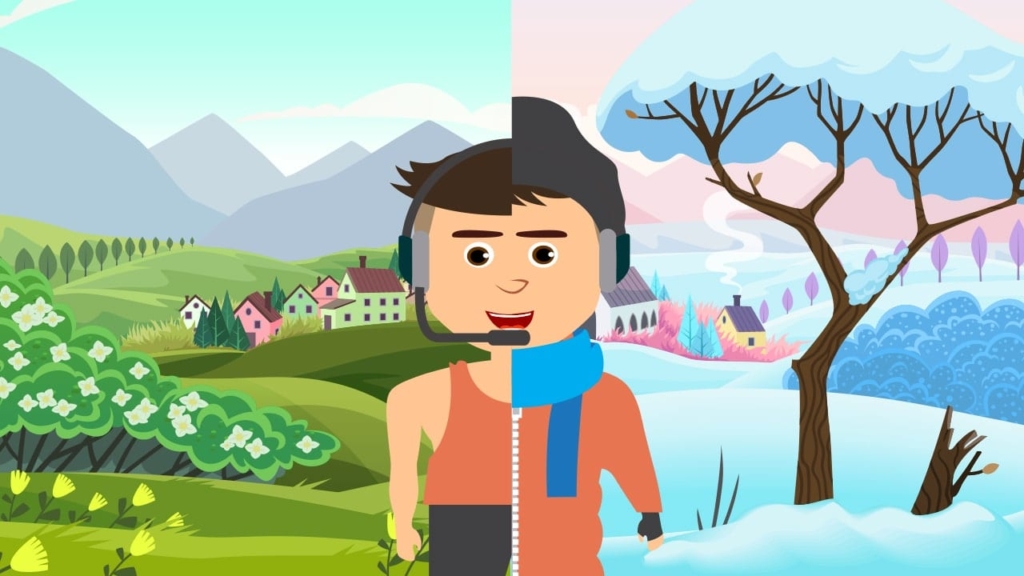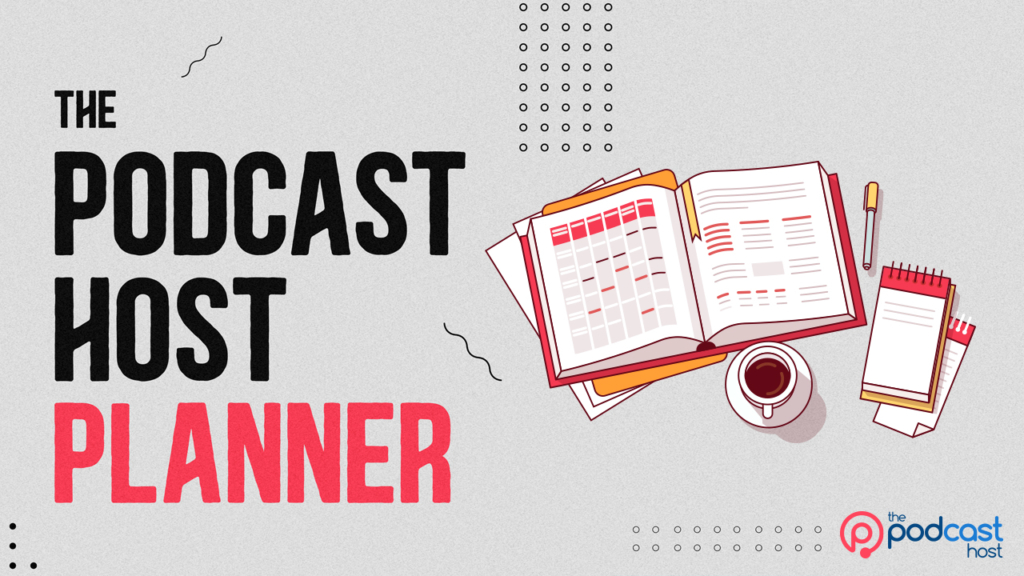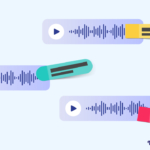How Often Should I Release a Podcast? Frequency & Schedules
“How often should I release a podcast?” is a question like so many others in the medium – it depends. If you must have a short answer, it’d be “weekly”, but there are so many nuances and reasons why that might not be the best fit for you. In this post, we’re going to figure that out together.
Some podcasters release weekly episodes, some every two weeks, some once a month. Others release several times a week, or even, daily. Just like everything else in podcasting, there is no single perfect solution for everyone. The “best” schedule is normally the most frequent one that you can stick to on a regular basis.
It’s better to have good episodes, less frequently than average or sloppy episodes frequently.
A show that’s carefully crafted, without stress, will be better than a show that’s pulled together feverishly within minutes of a deadline.
How Often Do Podcasters Publish New Episodes?
Just because something works well for someone else doesn’t mean it’ll be the best option for you. With that said, though, here’s some data on how frequently other podcasters release new episodes, just to give you a lay of the land:
Source: Buzzsprout
- 0 – 2 days 7%
- 3 – 7 days 34%
- 8 – 14 days 39%
- 15 – 29 days 18%
- Over 30 days 1%
Again, this is informational rather than instructional, but it shows you where that sweep spot lies for the majority of podcasters.
How Long Does It Take YOU To Do Good Work?
A podcast episode involves many steps and variables, from prepping your topic to setting up and recording, editing and production, show notes, publishing, and promotion.
With enough advance planning, you can do things in batches: record a season of episodes at once, edit them all at once, and then make and schedule website and social media posts for them. Batching has its own challenges, though: If you recorded a handful of episodes in one day, would you still sound as fresh and enthusiastic on the last as you did on the first?
If you work 40 hours a week and spend 10 hours working on each episode, a weekly release schedule probably isn’t healthy for you. If your podcast is a five-minute show with one voice, few sound cues, and one topic, releasing weekly or more often might be easy. Know your strengths and weaknesses, and use them to your advantage.
Here’s our guide on how much time it takes to run a podcast, so you can get a thorough idea of where you might sit on the spectrum.
How Often Should I Podcast? Quantity vs. Quality
More frequently doesn’t necessarily mean better.
People get listening fatigue. If you’re releasing episodes frequently, you run the risk of being repetitive. A new episode popping up in your listeners’ app every few days will certainly get their attention, but if the content sounds sloppy or doesn’t deliver on its promises, those listeners won’t stick around. The word of mouth that you generate will be negative.
Some topics and shows – news, for example – need regular release schedules to stay relevant. A time-sensitive topic might not be a good fit for you if you struggle to maintain a regular release schedule. That said, maybe there’s a different spin or angle you can put on the subject to make it more evergreen.
For now, though, let’s look at some real-world examples of podcasters with specific release schedules and their workflows:
Daily Episodes
Andrea Parrish told me about the workflow for her social science discussion podcast, A Thousand Things To Talk About. Though it’s on a hiatus right now, this podcast releases a new episode every weekday. Parrish scripts five episodes at a time. She records them in blocks of 10-15, saying, “We aim for recording 15 episodes twice a month, to create buffer room.”
Her producer and editor sends completed episode recordings to her in five-episode blocks. On Sunday, she uploads five episodes and sets up the website and social media posts to make sure everything is scheduled to publish that week. “So while it is released every day in the week,” she said, “we try to produce it like a weekly podcast.” It’s a durable system.
Another interesting example of a daily podcast is the audio drama Mercury: A Broadcast Of Hope, produced by Atlanta Radio Theatre Company. Each episode disappears from podcast directories after one day. To hear their back catalog of episodes, you have to become a Patreon supporter. This audio drama about a group of optimists surviving a zombie apocalypse in a radio station is exciting. Not only that, but the release method also means that listeners have to pay close attention, invest financially, or both. If you don’t join them on Patreon, you must have a good memory and listen daily.
Both of these frequent-release podcasts we’ve talked about have short episodes. Most episodes of A Thousand Things To Talk About run roughly one minute and forty-five seconds to two minutes. Parrish has occasional “Deep Dive” episodes with longer discussions. Each Mercury: A Broadcast of Hope episode runs between two and a half and six minutes.
Finally, our own show, Pocket-Sized Podcasting, is another example of a sustainable daily show with a straightforward workflow. Granted, daily podcasts are not for everyone. But they’re also not the big frightening undertaking that you might’ve initially imagined.
Seasonal Episodes

Seasons let you (and your listeners) have a break. They can also help you organise or curate your content by topic, making it easier for new listeners to binge – and they create great repurposing opportunities, too!
Won’t listeners forget about the show? Not if you keep them informed. Just set a clear date for the beginning of your next season and stick to it. In the meantime, you can continue communicating via email and social media, if those are your jam.
Season finales and season launches (like birthdays and anniversaries) are easy milestones to promote, too, so this approach will throw up some nice growth opportunities.
Our show, Podcraft, takes a seasonal approach, and this means our audience can easily find and focus on each part of their podcasting journey as they learn along with us. For example, we’ve published seasons on launching, equipment, monetization, promotion, and more.
For more on this, check out how season-based podcasting can transform your content.
Use Habits to Your Advantage
A lot of habits are structured around a weekly calendar: this is the day we wash our clothes, this is the day we go grocery shopping, etc. You become a habit if you release your episode consistently on the same weekday.
But once again, consistency is what’s most important, not quantity. So don’t try to publish once a week to a set deadline if the quality of your content is suffering. If you regularly drop a brilliant episode every second or third week, that’s much better than churning out weekly slops.
Keep Your Audience Informed
Marketing expert Seth Godin sums it up well when talking about attention and habits. He says, “Make promises and keep them. Make an offer and then follow through…intentionally design your communications to create a habit of attention. Habits are hard to form and even harder to break, and when properly constructed, they can benefit both sides.”
… And if You Miss an Episode?
Life happens, and it’s not always possible to get behind the mic as you’d planned. If, for whatever reason, you miss an episode (or a few episodes) because of circumstances out of your control, just dust yourself down and get back on the horse as soon as you’re comfortable and able to do so.
Many podcasters who’ve taken unplanned breaks in their release schedule return with lengthy apology episodes. Whilst these may seem interesting or useful in the moment, they quickly become irrelevant as new listeners check out your back catalog of episodes.
By all means, spend a few minutes at the end of your comeback episode filling the listeners in on what happened (if you want to) – but don’t open with it or make it the entire focus of that episode, unless it’s super relevant to your topic.

Use Tools to Help You Stay Consistent
Ultimately, the answer to the question “How often should I podcast?” is to find and stick to the schedule that best works for you.
There are some handy tools out there to be a lot more efficient, too. For starters, our Podcast Host Planner Journal means you can sit down with a coffee and lay everything out on paper. This will go a long way to helping you stay focused and only work on the stuff that actually moves the needle.
Then there’s the elephant in the room – recording, editing, production, and publishing can take ages, especially if you’re a complete newbie.
That’s exactly why we developed our ‘Podcast Maker’ tool, Alitu. It handles every aspect of podcasting and is packed with time-saving features, from text-based editing to automatic filler word removal. You can try it out for free and test it all for yourself. And even if you don’t use it to help you publish episodes more often, you’ll have extra time to hone in on vastly improving the quality of your content—and that’s what really matters.

